5 Low-Cost Ways to Boost the Efficiency of Your AC
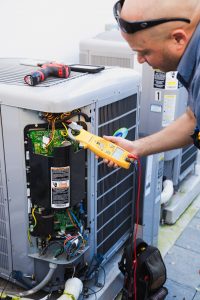
Are You Buying the Best Air Filter for Your System?

What Does an Air Filter Do?
Your HVAC air filter prevents dust and other particles from being pumped into your home’s air through your air conditioning or heating system. A good air filter will help keep your air clean and improve your home’s internal air quality. A number of factors contribute to indoor air quality, such as the health of your HVAC system, the number of pets in your home, level of dust and weather conditions in your area. The right filter can save you money on electricity and improve the air quality in your home by removing potentially harmful particles.
Different Types of Air Filters
According to the U. S. Environmental Protection Agency (EPA), there are four main types of filters, each of which offers different costs and benefits. The first is the fiberglass filter, which is layered to filter air and held together in a metal frame. Polyester and pleated filters tend to have better dust-blocking capabilities than their fiberglass counterparts. High-efficiency particulate arrestance (HEPA) filters take out 99.7 percent of all particles. Washable filters are less common but don’t have to be replaced.
Choosing the Right Filter
There are many factors that will help determine the best air filter for your system, such as the age of your HVAC system, if you have pets, how many people live in your home and if you have allergy sufferers at home. The type of filter you need also depends on the size of your home, the length of time the HVAC system has been in use and the weather in your area. A professional can tell you which filters are best suited to your needs by taking a look at the condition of your HVAC system. Generally, if the filter is damp, dusty or moldy, this likely signals a need for replacement. Frequently worn out filters could also mean that your current filter is not working well, and you may need to upgrade or switch to a different filter type.
Filter Maintenance and Replacement
Experts recommend checking air filters once a month. You should also have your filters looked at by a professional twice a year or more frequently if you use your system a lot. The wrong filter will be less effective, and it will need to be replaced more frequently. The wrong filter can also damage other parts of your system, such as heating coils and fans. Properly maintaining filters will help keep your system running cleanly and increase the life of the system and its parts.
Why You Should Upgrade Filters
Hire a professional to ensure you have the best filter for your needs. The correct filter will not need to be replaced as often, and it will increase the life of your system by helping to protect its vital parts. Poor indoor air quality can be a big environmental and health risk for your family. Unfiltered air can compound problems with allergies and respiratory illness. Installing better filters will reduce pollutants in your air and may save you money on electric bills through increased energy efficiency.
At Cox Heating & Air Conditioning, we have a professional, well-trained staff who will simplify the process and give you the high-quality service and attention you deserve. Contact our team of skilled technicians today so we can help ensure your home is safe and comfortable.
3 AC Servicing Tasks to Complete This Winter
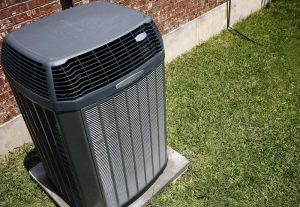
1. Perform a Thorough Inspection
Have a professional HVAC technician perform a complete inspection of all the components in your HVAC system before you use them. Doing so can ensure that any potential problems are addressed quickly and efficiently. You can then turn on your cooling system with confidence when needed, knowing that it will work well for you during the hot summer months.
On the other hand, a complete inspection may show that your system needs to be replaced. If this is the case, it’s best to do the replacement job right away. HVAC companies are not as busy during the winter as they are during the summer, so you should have no problem having a new HVAC unit installed in a timely manner.
2. Change Your Filters
The U. S. Department of Energy notes that changing clogged, dirty air filters can reduce energy consumption by up to 15 percent. You only need to change your filters once every three months if you don’t have pets; however, homes with one or more pets or with people who have breathing problems may need to change filters every 20 to 60 days.
3. Clear the Area Around Your HVAC Unit
Consider one more often-overlooked AC servicing task: Don’t allow grass, bushes or trees to come within a 1-foot radius of your unit. If you notice debris, grass or brush around your unit, clear it away to prevent HVAC problems and to ensure your unit will run efficiently both now and in the future.
It’s all too easy to take your HVAC unit for granted until you turn it on one hot summer day and discover that it isn’t running well. Thankfully, you can drastically reduce the odds of this situation by following the tips outlined above. At Cox Heating & Air Conditioning, we offer heating and AC servicing, repair and maintenance to meet any homeowner’s needs. If you need professional maintenance, are considering investing in a new HVAC unit or have an issue that needs emergency repair, contact us at your convenience to have one of our NATE certified technicians examine your unit and offer personalized, expert advice and assistance.
4 Tips to Stay Comfortable in Your Home This Winter

1. Consider Investing in a New Heating System
Naturally, there are costs to consider when investing in a new heating system. However, there are instances when such an investment is your best or even only option. If your system is old, has had regular mechanical problems or is the wrong size for your home, consider new heating system options to choose the best for you. Cox Heating & Air Conditioning stocks a number of high-quality Carrier heating systems, including gas and oil furnaces, packaged system and mini-splits. What is more, we offer professional assistance to help you understand all your options.
2. Maintain Your Heating System
Even the best heating systems need regular maintenance in order to be effective. Schedule service with trustworthy technicians to keep your system working properly for the winter. Additionally, make sure to perform certain tasks to keep your HVAC unit in good working order, including replacing air filters as often as needed, cleaning registers and removing clutter from around the furnace.
3. Check for Leaks
A home that doesn’t maintain a comfortable temperature does not necessarily signal HVAC problems. If your HVAC is relatively new and has been regularly maintained, you may need to check your home for leaks. Air can leak from holes in the roof, cracks in window panes and under doors. In other instances, faulty ductwork may need to be repaired in order to plug leaks.
4. Install Carbon Monoxide Detectors
If you have regular headaches, feel weak or dizzy and/or experience shortness of breath in your home, then carbon monoxide poisoning may be the cause. Carbon monoxide gas is odorless, and many people don’t realize that it’s in the air until it’s too late. Keep your home both safe and comfortable this winter by investing in carbon monoxide detectors for every single room in your home. Have a professional install the devices and check the batteries twice a year. If the carbon monoxide alarms go off, get everyone out of the home and then call your local police or fire department.
You deserve a comfortable home, particularly during the cold winter months. If your home feels uncomfortably cold or you find yourself feeling chilly in one or more rooms of the home, consider the tips outlined above. Our professional certified HVAC technicians are an excellent resource for addressing any problems you encounter. If you want to schedule an appointment, contact Cox Heating & Air Conditioning today.
Choose the Right Air Filter for Your Home
If you’re not familiar with air filters, you are not alone. Though important, they are a frequently overlooked part of your HVAC system. Below, we’ve compiled some information about what air filters are, what they do for your home and how you can choose the right one.
What Do Air Filters Do?
The air filter in your household heating and cooling system helps keep the air in your home clean and free of dust and other nasty particles. Internal air quality in your home can vary greatly depending on a number of factors, such as the health of your home air system, pets, level of dust and weather conditions in your area. The right filter can save you money on electricity and improve the air quality in your home.
Different Types of Air Filters
Four types of filters are found frequently in home HVAC systems. The first is the fiberglass filter, which is layered to filter air and held in a metal frame. Polyester and pleated filters have the same basic design but tend to feature better dust-blocking capabilities than their fiberglass counterparts. High-efficiency particulate arrestance (HEPA) filters take out 99.7 percent of all particles. Washable filters are less common but don’t have to be replaced.
Filter Maintenance and Replacement
You should check your air filters once a month and have a professional look at them twice a year. If the filter is damp, dusty or moldy, it’s time for a new filter. But it could also mean that your current filter is not doing a good enough job for your system. Properly maintaining filters will help keep your system running cleanly, but if you aren’t using the right kind of filter, you may have to replace them more often. Using improper air filters can even cause damage to other parts of your system, such as heating coils and fans, if they are not collecting enough of the particles in the air.
Choosing the Right Filter
The type of filter you need depends on the size of your home, the length of use and the weather in your area. If you have a large family, pets or people with allergies in your home, you may need even stronger filters. A professional can tell you which filters are best-suited to your needs by taking a look at the condition of your central air system.
Why You Should Upgrade Filters
Indoor air quality affects your health and your comfort. Poor indoor air quality can be an environmental risk, compounding problems with allergies and respiratory illness. Hiring a professional to check out your air filters ensures that you have the right fit, which means you will have to replace filters less often and your home air system will last longer. Getting better filters will reduce pollutants in your air and save you money on electric bill through increased energy efficiency.
If you want to hire a pro to simplify the process, look no further than Cox Heating & Air Conditioning. We can help make your home cheaper to maintain, safer and more comfortable.
Is an Air Purifier the Solution to Seasonal Allergies?
When summer changes to fall, many allergy sufferers find their symptoms worsen, even indoors. At home, air conditioners aren’t needed, and people with allergies lose the benefit of cool, low-humidity indoor air. At the same time, allergens like pollen from fall-flowering plants and mold spores can drift in through open windows and doors. Consequently, the change of season can be one of the best times to install an air purifier.
Seasonal Allergy Triggers
The number of allergy-triggering particles in the air can rise when the seasons change. Allergy sufferers are sensitive to a range of allergens like pollen, mold spores, pet dander, dust and dust mites. Ragweed pollen is one of the most common allergy triggers, and the plant is fall-flowering. Another common cause of seasonal allergies is a mold that grows on dead leaves in summer and fall. These allergens enter homes and contaminate indoor air, triggering allergy attacks.
What’s more, family habits change along with the seasons. If your dog or cat spends more time indoors, the amount of pet dander rises, and more people at home means more dust and more dust mites.
How Air Purifiers Help Allergy Sufferers
Air purifiers filter the microscopic particles from indoor air that trigger allergy attacks. Air is drawn into the machine and passes through a filter, and the purifier expels the filtered air. A portable air purifier only treats one room, but HVAC air filters treat the whole house. However, only air purifiers fitted with filters that score higher than 14 on the MERV (Minimum Efficiency Reporting Value) scale remove the pollens, mold spores and other allergens that pollute indoor air. To effectively clean the air for your entire household, you need an HVAC system fitted with a HEPA (High Efficiency Particulate Air) filter, which removes 99.97 percent of indoor air particles. These top-quality air filters also remove harmful pathogens like bacteria.
Installing an Air Purifier
A portable air purifier may seem the most convenient solution to allergens in indoor air, but installing an HVAC air filter is the most efficient and effective option. Fitting a HEPA filter into an HVAC system isn’t simple, however. To provide the required pressure of air for the filter to work, it must be installed into a separate HEPA system, and that’s a job for a professional. After installation, the filter must be changed regularly to maintain the indoor air quality.
Breathing fresh, clean air at home is a pleasure, and for allergy sufferers it’s essential if they want to avoid attacks of wheezing, sniffles, coughs and worse. Air purifiers can remove the allergens that appear in indoor air when the seasons change.
If you’d like more information on installing an air purifier in your home, contact Cox Heating and Air Conditioning today and let our professional contractors help you decide which home air filter is best for your needs.
5 Green Tips to Stay Cool During the in Hot Days of Early Fall
Hot, sticky weather is one of the downsides of late summer that can last well into the fall, and running your home’s air conditioning often results in high energy bills. Fortunately, by following a few green tips, you and your family can enjoy a cool house without wasting energy or stretching the household budget. Avoiding late summer heat is a simple matter using air conditioning wisely and keeping the cool air in and the heat out of your home.
Programmable Thermostats
One of the best green tips for using air conditioning effectively is to install a programmable thermostat, which cools the house to a comfortable temperature when the family most needs it. With a programmable thermostat, the air conditioning can be set to a lower temperature during morning and evenings when most people are home, and at a higher temperature during the main part of the day when the house is often empty.
Air Conditioning Temperatures
A common misconception about air conditioning units is that setting the temperature very low cools a room quickly. In fact, low-temperature settings on air conditioners don’t increase the speed that the room cools, but they do increase energy costs. Most people are comfortable at 78 degrees Fahrenheit, but you can experiment to find what temperature suits your family best. Higher temperature settings use less energy.
Air Conditioning Maintenance
A poorly maintained air conditioning unit requires more energy to achieve the same reduction in indoor temperatures as a well-maintained unit. Arrange regular services for your unit, including filter changes and coil cleaning. If your air conditioning system is older than 10 years, it’s time to consider an upgrade. Modern HVAC systems are often more energy efficient and more effective at cooling the home than older models.
Fans
Using fans in tandem with air conditioners boosts cooling power. Ceiling fans and portable fans cost little to run but move the cool air around the room. Consequently, you can set your air conditioner at a higher temperature and achieve the same cooling effect.
Sealing Gaps and Cracks
Just as heat can escape through gaps and cracks during winter, cool air leaves the home through the same routes. As a result, air conditioners must work harder and use more energy to keep indoor temperatures down. Seal gaps around door frames and windows with silicone caulk, and tape up leaks in HVAC ductwork.
Making the best use of your air conditioning unit means you don’t have to sacrifice your peace of mind to keep your home cool and comfortable. Contact a professional contractor for more advice about how you can improve the efficiency of your air conditioning.
How to Keep Your AC Running Strong All Summer Long
The last thing you want to experience during the dog days of a searing Tampa summer is your AC going out. But the warmest months have arrived, and that means it’s prime time to ensure your AC system runs strong all season long. Here’s how to get started.
Get a Seasonal Inspection
If you didn’t schedule an HVAC inspection at the start of the warmer season, that’s a great first step. Or, if it’s been a few months since you last used your AC unit, it’s smart to get an inspection from a licensed professional, too. This ensures your AC unit is in working order and ready to handle the demands of the summer heat. After your unit earns a clean bill of health, you simply need to maintain it with cleaning and fresh filters throughout the summer.
Use Clean Air Filters
A clogged air filter can put unnecessary strain on your HVAC system and can lower your AC’s energy consumption by 5 to 15 percent. You also need to change your air filters more often during the summer months — you’ll be running the AC more often, so set a reminder to check your HVAC system’s filter at least once a month.
You may also want to switch air filter types or sizes in the summer. Fiberglass filters are the cheapest but have the lowest MERV ratings (which measure how effectively an air filter removes particles from the air), while high-efficiency filters are the most expensive and most efficient. If you don’t have allergies or need a pricey filter, the best overall choice for summer is a pleated filter. They’re inexpensive and can capture smaller particles for longer periods of time without affecting the airflow of your system.
Weatherize
Weatherizing your home for the summer can save money on cooling costs, ensure your HVAC system remains efficient and reduce energy consumption. You can weatherize effectively by:
- Adding caulking around windows and doors to keep cool air from escaping
- Replacing worn weather stripping under doors
- Hanging up window treatments
- Insulating electrical outlets
- Installing fans
Maintain Your Outdoor Unit
Many homeowners forget the essential part of the HVAC system: the outdoor unit. It pulls in outdoor air to cool and pump through your home. Outdoor condenser coils can become dirty or blocked, so keep the area around the coil clean and make sure foliage is trimmed back at least 2 feet from the intake to avoid blocking the airflow.
To complete a simple cleaning, power down the unit and:
- Remove the protective metal case
- Vacuum or brush off the condenser fins
- Wipe the fan with a damp cloth
- Spray the fins from inside out with a hose
- Reassemble the unit
The soaring Tampa temps can bring unpleasant conditions if your home isn’t prepped to beat summer’s heat. Schedule a seasonal inspection with the licensed professionals at Cox Heating and Air Conditioning to get your HVAC system in order for one cool summer.
Maintaining Your Home Air Quality Through the Hot Summer Months
The EPA reports that the average American spends about 90 percent of his or her time indoors. In addition, indoor air quality is among the top five environmental risks to health — it can be up to five times more polluted than outdoor air. Summer heat and humidity can negatively impact indoor air quality, too. It sounds a bit frightening, but worry not. Here’s how to keep your home’s indoor air safe this summer as you beat Tampa’s heat in the cool A/C.
Air Filtration
Volatile organic compounds (VOCs) are airborne chemicals that can be hazardous to your health and the environment. They’re year-round concerns, but even more so in the summer when the heat disperses them widely. VOCs are emitted as gases from certain solids/liquids, and levels can be up to 10 times higher indoors that outside — many household items emit VOCs. VOCs can also get into your living space through open windows or ventilation systems. In the summer, the main culprits are:
- Pesticides
- Fertilizers
- Insect repellants
- Gas mower exhaust
The list of health impacts is long, from headaches to cancer. To reduce the impact of VOCs, you need a proper indoor air filtration system. Whole-house air filters clarify air through your home’s HVAC system. The type of air filter matters; look for a MERV rating (which indicates overall effectiveness at trapping particles) of 16 or higher to remove chemicals from the air.
Ventilation
The longer air remains in a home, the longer the pollutants also stay. The air exchange rate (ACH) is the number of times outdoor air replaces indoor air per hour. It can tell you how well your home is ventilated; the lower the ACH, the lower the indoor air quality typically is.
To improve your home’s ACH, improve ventilation. Simply opening a window won’t get you the ventilation needed, especially in summer; you’ll need a mechanical ventilation system that circulates fresh air using ducts and fans. Ventilation systems can improve air quality and your comfort. Balanced-type systems reduce the moisture content of incoming air, and supply-type systems both cool and dehumidify outdoor air before it enters your home.
Dehumidifiers
In summer, the relative humidity in your home can rise. This creates condensation on air-conditioned surfaces and dampness in attics as warm air rises and cooler air sinks. High levels of relative humidity can cause health problems, discomfort and a less-hygienic atmosphere.
An indoor relative humidity level of 60 percent or more can also lead to problems like mildew and mold. Ideal indoor relative humidity levels should remain between 20 and 60 percent.
Using a dehumidifier will not only remove humidity, but it’ll also keep your home at a more comfortable temperature — particularly in the summer.
Are you ready for summer’s heat? The professionals at Cox Heating and Air Conditioning have the latest technology for indoor air filtration and can help ensure your Tampa-area home stays comfortable. Contact the HVAC experts at Cox today.
Beat the Heat and Humidity: Floridians Take On Air Conditioning
For Floridians, air conditioning isn’t a luxury — it’s as necessary as oxygen! Soaring humidity levels and scorching summer temperatures keep many Floridians indoors to avoid the worst of the swampy weather. Average temperatures in the Sunshine State range from 64 to 74 degrees Fahrenheit during winter and 80 F to 92 F during summer, with humidity levels averaging 73 to 90 percent. Let’s face it. With that weather, air conditioning is like another family member — it’s vital to everyday life. Other than keeping HVAC systems in tip-top shape, how do Floridians beat the heat? With some summer survival tips, of course!
 Survival Tips
Survival Tips
No matter how amazing your air conditioning is, you eventually have to venture outside. When you do:
1. Stay Hydrated
If you’re undergoing HVAC installation or repairs or you simply plan to spend time outside, the number-one way to survive Florida’s climate is to drink plenty of water. While your spirit might want to head to Margaritaville, your body needs to replenish electrolytes, which you lose while you’re sweating under the hot Florida sun.
2. Consider Your Timing
When you want to go for a walk, run or do anything strenuous outside, time it for early morning or evening. Otherwise, once the high heat kicks in, you’ll feel like you’re broiling.
3. Wear Cooling Clothing
Stick with breathable fabrics that won’t cling to your body. Light colors help you feel cooler, moisture-wicking materials can help keep you dry and sunglasses shield your eyes from the glare of the sizzling sun. Don’t forget sunscreen!
Maintaining HVAC Systems
Before HVAC installation was possible, not many people lived in Florida. Without air conditioning, not many folks would stick around for the summer even today! Fortunately, HVAC systems are widely available now. With a little maintenance, you can chill out for many seasons to come.
1. Clean and Replace Filters Regularly
Prevent HVAC systems from becoming overworked — which could put your system at risk for a dreaded breakdown — by showing some love to your HVAC system’s filters. Dirty, clogged filters not only make HVAC systems work harder, but they also reduce airflow. That means you won’t be as cool as you want to be.
2. Free Up the Compressors
To stay cool, you need to make sure your unit’s outdoor compressor stays free of all shrubs, plants and other debris. Thoroughly check and remove foliage in spring and fall.
3. Have a Reputable Service Company on Speed Dial
HVAC installation, repairs, tune-ups — service companies can do it all. Living in Florida, you already know how important it is to have a reliable company on call if your air stops working or you need professional maintenance to keep the cool air flowing.
Cox Heating & Air Conditioning has been providing expert professional services to Hillsborough and Pinellas counties since 1958. If you have questions or need help beating the heat, visit our website to learn more or schedule an appointment today.



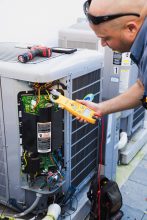

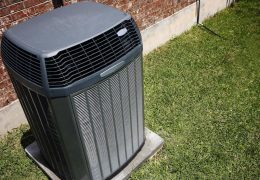

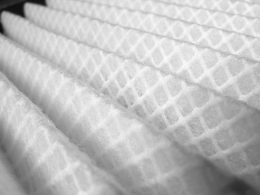
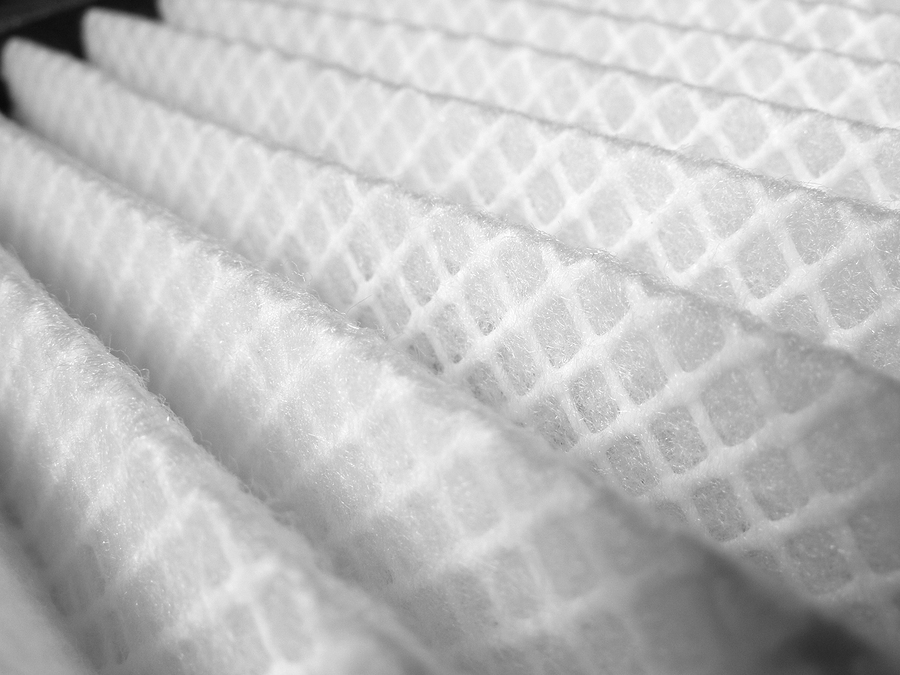


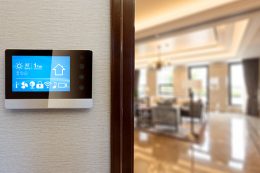






Recent Comments